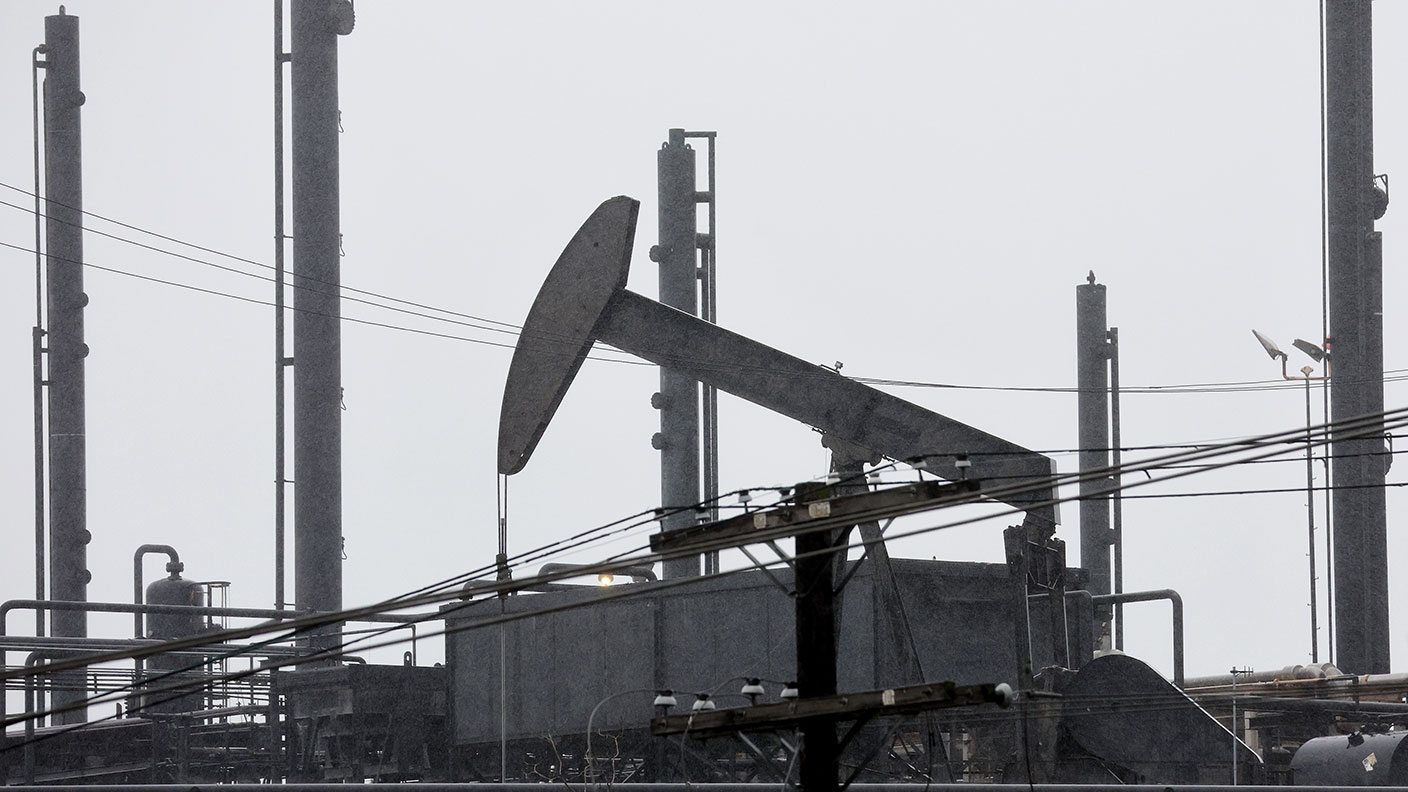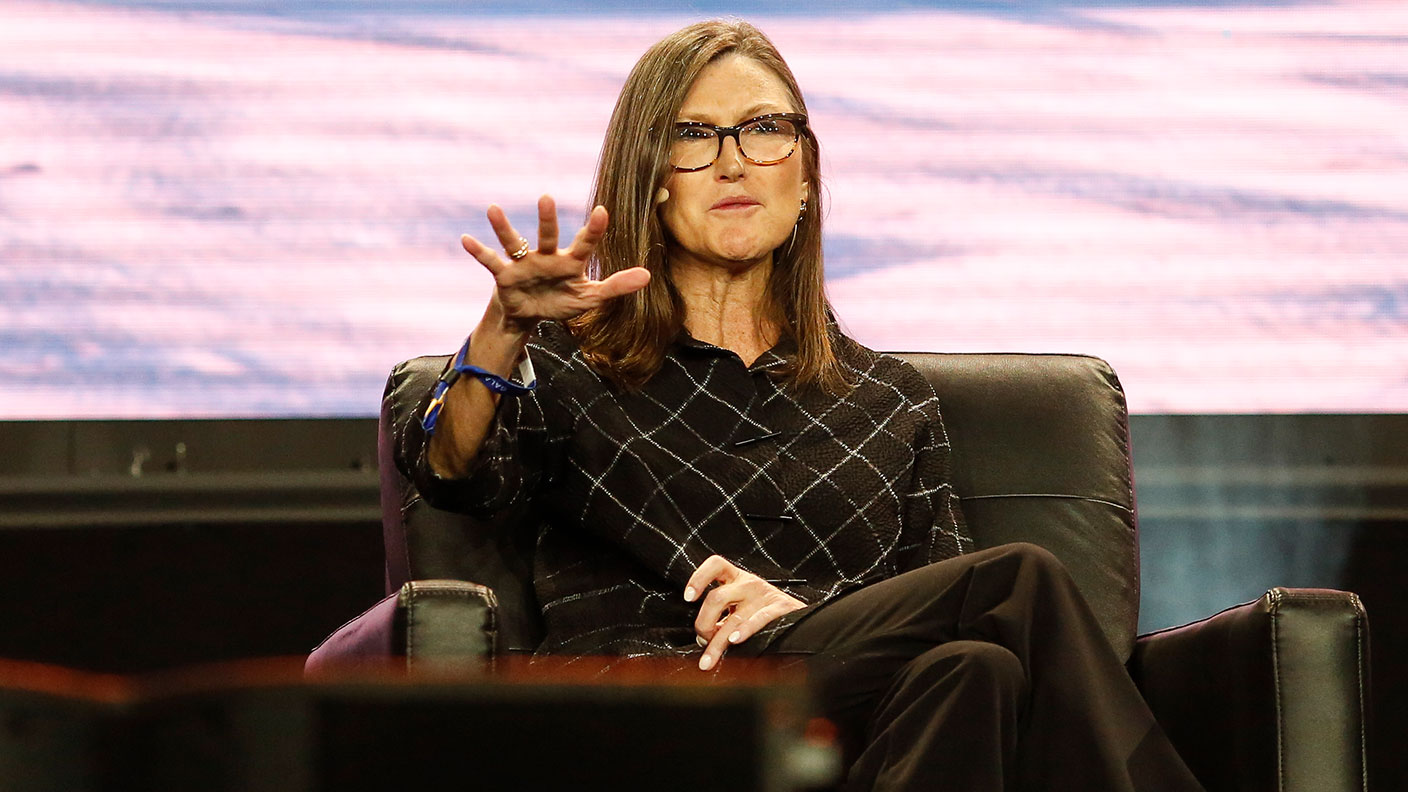What escalating tension between Iran and the US means for oil prices
The tension between the US and Iran is unlikely to mean all-out war in the Middle East. But markets may be getting a little too complacent about its effect on the oil price, says John Stepek.

Get the latest financial news, insights and expert analysis from our award-winning MoneyWeek team, to help you understand what really matters when it comes to your finances.
You are now subscribed
Your newsletter sign-up was successful
Want to add more newsletters?

Twice daily
MoneyWeek
Get the latest financial news, insights and expert analysis from our award-winning MoneyWeek team, to help you understand what really matters when it comes to your finances.

Four times a week
Look After My Bills
Sign up to our free money-saving newsletter, filled with the latest news and expert advice to help you find the best tips and deals for managing your bills. Start saving today!

Happy New Year!
It's always good to start a new decade on an optimistic note.
So coming back to headlines fretting about World War III is perhaps not the best way to start the year.
MoneyWeek
Subscribe to MoneyWeek today and get your first six magazine issues absolutely FREE

Sign up to Money Morning
Don't miss the latest investment and personal finances news, market analysis, plus money-saving tips with our free twice-daily newsletter
Don't miss the latest investment and personal finances news, market analysis, plus money-saving tips with our free twice-daily newsletter
The latest on the Cold War in the Middle East
At the end of last year, I said that I reckoned that oil would be one theme to watch in 2020. But I'll admit I didn't expect it to be grabbing headlines quite as early on in proceedings.
Long story short as you're probably already aware of what's going on on Friday, Iranian general Qasem Soleimani was killed in an airstrike at Baghdad airport. The airstrike was ordered by the US.
Soleimani was the head of the Iranian Revolutionary Guards' Quds Force. It's considered a terrorist organisation by the US, and the US says that Soleimani was "actively developing plans to attack American diplomats and service members in Iraq and throughout the region". The airstrike also followed an attack on the US embassy in Iraq.
Now, let me make one thing clear before we go any further: I'm not an expert on Middle Eastern politics and, unlike lots of people on Twitter, I feel no need to pretend to be. I hadn't heard of this guy until this happened.
My broad understanding of the Middle East is that Saudi Arabia and Iran are at loggerheads, and they are effectively engaged in proxy wars across the region. Yemen and Syria are two examples.
Overlaid on that, you have the US, whose interests are broadly aligned with those of the Saudis (although increasingly less so, because the US is now energy independent), and the Russians, whose interests and sphere of influence broadly aligns them with Iran.
Whatever you think of what's going on here, or who did what and where, and who the "goodies" are and who the "baddies" are, one thing is reasonably clear to a non-expert eye: things are hotting up in the Middle East, which is still a hugely important area for global oil production.
In turn, that suggests that the relative complacency that hung over the oil market last year is likely to disappear this year. Particularly if the demand side holds up better than many investors fear.
So what happens now?
This does not mean war not outright, in any case
Tom Holland (no, not that one and no, not that one either) of Gavekal argues that, for all the headlines, this doesn't represent the sort of escalation that the papers are fearing.
On the one hand, the US feels that diplomacy has failed to contain Iran. The nuclear deal collapsed ages ago. Meanwhile, sanctions aren't squeezing the regime to change its mind. Nor are they fomenting the kind of anger required for internal regime change to take place.
On the other hand, the US does not want to get involved in any more open wars in the Middle East. At least one factor behind Donald Trump's election was a desire on the part of the US populous to put Iraq and foreign wars in general behind them.
A core part of "America First" as an ideology, is an end to "Pax Americana". Let the rest of the world sort out its problems America's got enough to be getting on with at home. I wouldn't underestimate how important that is to Trump's core voters.
So, argues Holland, getting rid of Soleimani was the best of a bunch of bad options as far as the US goes. And on the Iranian side it's one thing to threaten retaliation, or to consider shutting down the Strait of Hormuz, but it's quite another to go through with it. For all that the US is reluctant to go to war, there's no question who would "win" if it came to all-out warfare.
As Holland puts it, "the very reason Tehran has sought to extend its regional influence through the asymmetric methods championed by Soleimani is precisely because it cannot take on the US directly".
In turn, he argues, this means that "the risk premium being priced in by financial markets is likely to remain limited with oil remaining in its 14-month range capped at $75 per barrel for Brent and to abate over time, at least until the next flare-up".
Markets are still too complacent on oil
I suspect that Holland's analysis is probably accurate in terms of the risk of a big conflagration. However, I'm not so sure about the argument on the risk premium or at least, the idea that oil prices will be capped.
The last big surprise was the drone attack on Saudi Arabia's production. The oil price spiked, then almost immediately came back down. We may well see a similar pattern here, but we can almost certainly expect more incidents.
And in any case, there are quite a few other factors that could mean there is less oil than required hitting global markets this year. Shale oil production growth appears to be slowing. That's partly because the producers are struggling to fund themselves. And that's before we get to any surprises on the demand side.
In short, I'd maintain exposure to the oil production sector. There's still too much complacency out there. We discussed just how much complacency in our New Year roundtable in MoneyWeek magazine if you missed it, subscribe now to get your first 12 issues for just £12.
Get the latest financial news, insights and expert analysis from our award-winning MoneyWeek team, to help you understand what really matters when it comes to your finances.

-
 Should you buy an active ETF?
Should you buy an active ETF?ETFs are often mischaracterised as passive products, but they can be a convenient way to add active management to your portfolio
-
 Power up your pension before 5 April – easy ways to save before the tax year end
Power up your pension before 5 April – easy ways to save before the tax year endWith the end of the tax year looming, pension savers currently have a window to review and maximise what’s going into their retirement funds – we look at how
-
 Are UK house prices set to fall? It’s not so simple
Are UK house prices set to fall? It’s not so simpleAnalysis Figures suggest UK house prices are starting to slide, but we shouldn’t take these numbers at face value, explains Rupert Hargreaves.
-
 Tesco looks well-placed to ride out the cost of living crisis – investors take note
Tesco looks well-placed to ride out the cost of living crisis – investors take noteAnalysis Surging inflation is bad news for retailers. But supermarket giant Tesco looks better placed to cope than most, says Rupert Hargreaves.
-
 It may not look like it, but the UK housing market is cooling off
It may not look like it, but the UK housing market is cooling offAnalysis Recent house price statistics show UK house prices rising. But John Stepek explains why the market is in fact slowing down and what this means for you.
-
 Think the oil price is high now? You ain’t seen nothing yet
Think the oil price is high now? You ain’t seen nothing yetAnalysis The oil price has been on a tear in recent months. Dominic Frisby explains why oil in fact is still very cheap relative to other assets.
-
 What can markets tell us about the economy and geopolitics?
What can markets tell us about the economy and geopolitics?Sponsored Markets have remained resilient despite Russia's war with Ukraine. Max King rounds up how reliable the stockmarket is in predicting economic outlooks.
-
 The tech bubble has burst – but I still want a Peloton
The tech bubble has burst – but I still want a PelotonAnalysis Peloton was one of the big winners from the Covid tech boom. But it's fallen over 90% as the tech stock bubble bursts and and everything else falls in tandem. Here, Dominic Frisby explains where to hide as markets crash.
-
 The market is adjusting to a new “short dreams, long reality” world
The market is adjusting to a new “short dreams, long reality” worldAnalysis As interest rates rise, things are starting to change, says John Stepek. Reality is biting back. Gone are the fanciful ideas built on hope – a business now needs a solid foundation.
-
 Are UK house prices heading for a fall?
Are UK house prices heading for a fall?Analysis UK house-price growth is slowing as interest rates rise. But interest rates aren’t all that matters for house prices, says John Stepek.